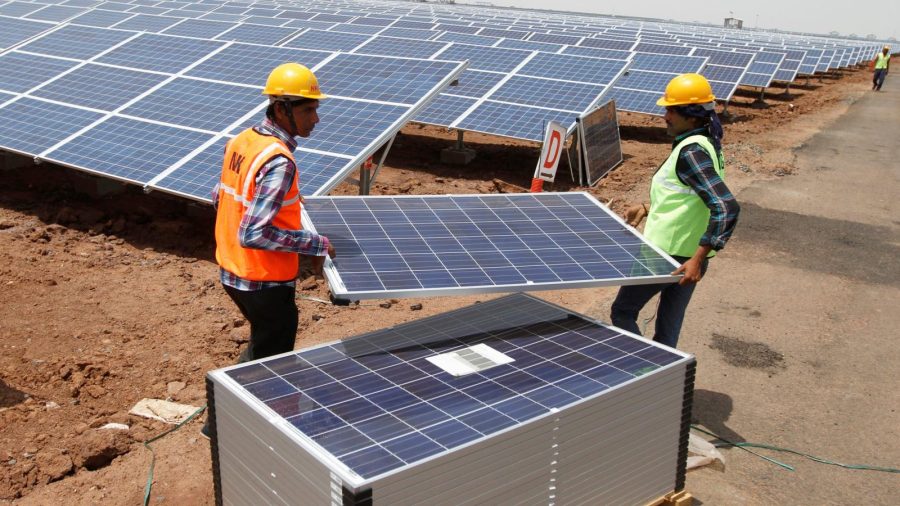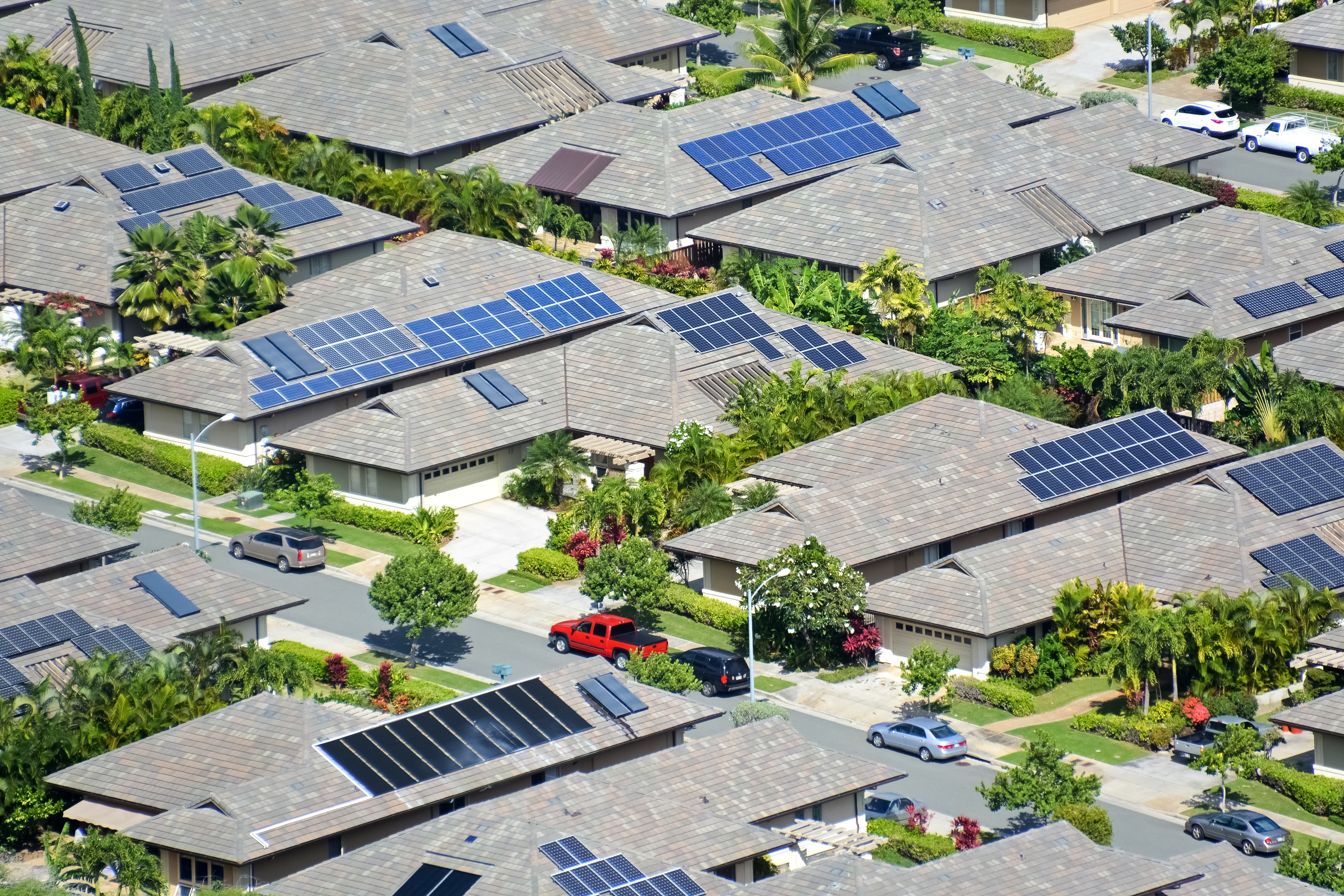With the Christmas holidays fast approaching, Mr Celestine Inyang and his family have decided to purchase an alternative power source to fill gaps in the 9 hours of power supply they receive daily.
So, the first thing Celestine did was to get acquainted with the inverter market. He would soon learn that there are two types of inverter systems – the inverter backup system and the complete solar system.
He also learned that while some inverters are smart and may pick solar as their priority, others may pick utility providers as their priority.
Do note that inverters are conversion systems which convert alternating current (AC) to direct current (DC).
Anyone desirous of an alternative power supply source will have to choose between either of the two types of inverter systems mentioned earlier. Their features are detailed below.
The inverter backup system: This consists of just an inverter and batteries. Some people fix these installations without solar panels at their homes and offices.
- If a particular locality has up to 6 to 8 hours of power supply in a day, the batteries in this system are charged using the public utility supply (Regional DisCos).
- Power from the public utility comes through AC. When the power supply goes through the inverter, it will be converted to DC and stored in the batteries.
- When power is not available, the inverter converts the DC energy stored in the battery to AC to be used in the house or office. PHCN charges the batteries in this case.
Meanwhile, users can have an inverter backup system that does not have solar panels. In the absence of a public utility power supply, it will charge up the batteries and store energy in them, so when there is no power, the batteries provide power through the inverter which converts DC to AC.
The complete solar system: In this setup, solar panels are used to charge the batteries. During the day, the panels generate the energy that is stored in the batteries, so when there is no public utility power (PHCN), the batteries provide backup power. It is important to understand that there are inverters that have solar panels. The complete solar system consists of solar panels, charge controllers, inverters and batteries and other safety gadgets like the surge protector. In this case, solar panels charge the batteries and when there is no public utility power, the batteries provide power.
Let’s talk about the costs: Costs for either inverter system are subjective because oftentimes, costing depends on capacity.
- Chigozie Enemoh, the founder of renewable energy company Swift Tranzact, told Nairametrics that if someone is installing a 3 KVA inverter with 4 batteries, it will not be the same cost as someone installing a 5 KVA inverter with 8 batteries.
- According to him, these materials have specific costs. The focus of the system design is mostly on the energy demand of the location – house or commercial building.
- For instance, a flat that has three deep freezers, a microwave, a washing machine and one fridge won’t consume the same amount of energy as another flat that has just one fridge, some lighting points, and a television.
Enemoh also noted that energy demands are different from person to person. Therefore, energy audits should be conducted to determine energy demands before designing a system for a particular use. Doing this helps to get a holistic calculation of all the loads in the house or office, ranging from the television, lighting points, and other appliances, to determine the number of watts needed for each. He said:
- “Another determinant of cost is the type of batteries. In Nigeria, there are two types of batteries – the wet cell and the dry cell. Wet cell batteries usually have distilled water in them and they have to undergo maintenance every four to six months. 200 amps of wet cell batteries cost between N150,000 and N165,000.
- “Dry cell batteries, also known as valve-regulated lead acid (VRLA) batteries, cost N165,000 to N215,000, depending on the brand.
- What designers of the system need to calculate is how many of these batteries are needed. For instance, if a user wants to make use of two wet cell batteries, that means the user has to budget N300,000 alone for batteries. If the user chooses to use four batteries, that is approximately N600,000.”
The same thing applies to inverters. There are various types – 2 KVA, 3 KVA, 5 KVA, 10 KVA and above. Enemoh said:
- “On average, one can purchase a 3 KVA inverter from N200,000 to N250,000. 5 KVA inverters cost between N350,000 and N450,000. All these will depend on the brand as prices differ across various brands. Aside from the inverters and the batteries which are the major components, users need to also purchase the AC and DC cables to be used for the system setup, as well as safety devices like circuit breakers, surge protectors, etc.
- “For a 3 KVA inverter with four batteries, the user will likely spend up to N1 million to N1.5 million for a set up in a home or office, depending on the brand or product quality. This is enough to sustain a basic Nigerian home with just one fridge, and lighting points.
- “If the user is considering setting up a complete solar system, it is instructive to note that the ratio of solar panels to batteries, is 2:1 or 2.5:1. What this means is if the user has four batteries, they should also get between 8 to 12 solar panels for the system set up.
- “As of December 2022, a 280-watt solar panel costs between N80,000 and N85,000. 350-watt solar panel costs between N90,000 to N98,000. All these costs depend on the brand and product quality.
- “The user will spend up to N2.2 million and N2.5 million to set up a standard 12 solar panel, four batteries and a 3 KVA inverter.”
Why it is so expensive: The first thing to note is that the technology is mostly imported. Sector players import these products using dollars. And as Nigeria’s forex rate keeps rising, so do prices.
Implication for customers: Unfortunately, many average Nigerian who are faced with multiple financial constraints (including 21.09% inflation rate) may struggle afford these technologies. However, Nairametrics understands that there are options for flexible payments.
Cheaper options to consider: Although these costs are high, there are ways to access these alternative power sources through third-party financiers. Renewable energy companies in Nigeria now partner with financiers to help people purchase these alternative sources through flexible payment plans.
Some companies who already do this are Sterling Bank (through its AltPower platform), Carbon and RenMoney. These companies have a project financing focus.
- The point of the partnership is that if for instance, the project cost is N2 million and the user has N500,000, the latter sum could be paid to the renewable energy company providing the technologies. Then, the loan company pays the balance of N1.5 million and then spread out the repayment of the balance over 12 to 24 months on a flexible repayment plan by the user, with a 3% to 20% interest rate.
- This way, the user makes payments every month until the N1.5 million loan is fully paid to the loan company. If the user is paying for 24 months, the payment will be about N100,000 monthly. Sterling Bank caters to salaried individuals with an account domiciled at the bank as well as corporate organizations for this third-party project financing, Loan companies cater to both individuals and businesses.
- However, for individuals to access project financing loans from loan companies, they need to show a steady revenue stream that will enable them to repay the loan.
Efforts to curtail the costs: Some sector players are still looking at ways to curtail costs so more Nigerians can purchase inverters. However, Enemoh told Nairametrics that the cost of manufacturing in Nigeria is still very high. This is because power supply and other challenges are prominent in Nigeria’s manufacturing sector, which increases the cost of production and ultimately increases the costs of finished products.
Auxano Solar used as context: Nigerian solar panel manufacturer, Auxano Solar, provides context to this argument. According to Enemoh, if one compares the prices of solar panels from Auxano Solar with the prices of imported solar panels, it will be discovered that there is no huge difference because of the amount of money that goes into local production.
Possible options for Nigerians: For Mr Celestine Inyang, the option of third-party financing through loan apps would be easier for a civil servant like him.
However, it’s important to reiterate that there are millions of Nigerians out there who work on a part-time basis and cannot access these loans because they are contractors.
More solutions are needed to make renewable energy technologies accessible to every Nigerian.

















i thought inveter converts direct current to alternating current!
Power inverters main function is to convert DC power to AC power. However due to improvements in design, power inverters now include AC to DC conversion in order to use the AC power (when available) to charge the battery.
Hello Omono Okonkwo!
I am delighted to read this article; it has given me an in-depth understanding of the issue many Nigerians face when accessing renewable energy technologies.
I love how you have highlighted the efforts being taken by sector players to reduce costs so more people can purchase inverters and the context used from Auxano Solar to support your argument.
I agree with Celestine Inyang’s view on third-party financing through loan apps being a feasible option for civil servants like him and other individuals employed full-time.
However, this only holds for those who work part-time or are contractors since they cannot access these loans easily.
I believe a great way to make renewable energy technologies more accessible to Nigerian citizens would be through the government’s involvement.
An initiative such as tax breaks or subsidies for those who wish to purchase an inverter could help alleviate costs and make these products more affordable.
Furthermore, local production companies should collaborate with other organizations at a national level to increase their reach and make renewable energy solutions available across Nigeria.
In conclusion, this article has been incredibly helpful in understanding Nigeria’s current situation of accessing renewable energy sources.
I am grateful for your insights on how individuals can access these technologies and how the government can implement policies that benefit everyone.
Keep up the excellent work!
Nice article..But I was expecting to see or hear the basic type of inverters that is the Pure sine wave and modified sine wave and how its affect home appliances and there functions..also I was expecting to see the upgrade that has been done in inverter technology which includes the off grid and hybrid type of inverters which can also be categories under transformed or transformless type of inverter and also how the type of inverter can affect the operations time if you using the wrong type of batteries..
Hi there I have a system of 4x405watts 24v jinko mono panels hooked to a 24v MUST OFF GRID HYBRID INVERTER(PURE SINE),the question is even when the sun is at itss best it produces 1200watts as read on INVERTER display.so how does it lose over 400watts?
There are possibilities: If the panels are in parallel, one panel may not be working., the sensitivity of the Must Hybrid inverter to pick varying solar power with respect to solar radiation may no longer be efficient, impedances along DC transmission lines may play out but not technically as much as 25% drop, and finally the SCC in your hybrid system may not be 100% efficient. Solution: Get an expert to check your system and sort out the losses.